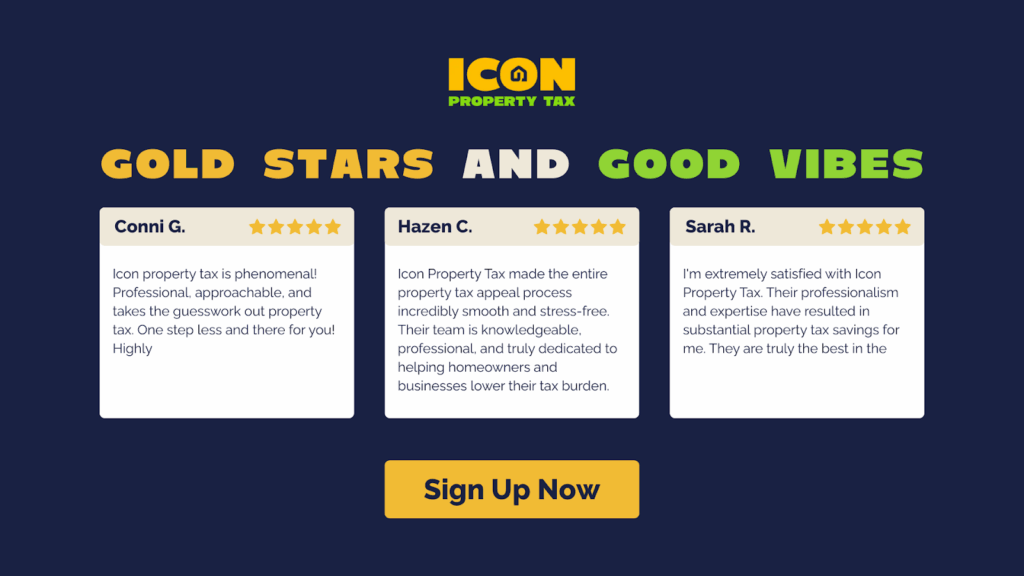Why Your Property’s Assessed Value Doesn’t Match Its Market Value (And Why It’s Important)
June 2, 2025
Key Takeaways:
- Valuation: Market value reflects what your home could sell for today, while assessed value is used by local governments to calculate property taxes, and they’re often not the same.
- Discrepancy: Discrepancies between the two values can cost you money, especially if you’re overpaying on property taxes due to an outdated assessment.
- Appeal: You have the right to appeal your assessed value, and knowing when to get a professional appraisal can help you make smarter financial decisions.
Property owners are often surprised — and confused — when they discover a big difference between their property’s market value and its assessed value. While market value reflects what your home would likely sell for today, assessed value is what local governments use to calculate your property taxes. These numbers aren’t always aligned, and that discrepancy can impact your bottom line in ways you may not expect. Whether you’re reviewing your annual tax statement or considering an appeal, understanding how these values are determined is critical to protecting your investment.
At ICON Property Tax, we’ve helped thousands of property owners across Texas lower their property tax bills by challenging inaccurate valuations, saving our clients millions of dollars in the process. Our expert team knows the property tax system inside and out, and we use that knowledge to fight for fair, accurate assessments on behalf of homeowners and investors alike.
In this piece, we’ll explain why your property’s assessed value doesn’t match its market value — and why that difference matters more than you might think.
What Is Market Value?
Market value is the price a buyer is willing to pay for a property in an open and competitive market. It reflects the actual worth of your home based on current real estate conditions, recent comparable sales, location, and demand.
Think of it this way: if you listed your property for sale today, the market value is the price you’d likely receive, assuming there’s no external pressure to sell and the buyer isn’t under any obligation to purchase.
Key factors influencing market value include:
- Recent sales of similar homes in the area
- The overall real estate market (buyer’s vs seller’s market)
- Property condition and upgrades
- Neighborhood amenities and desirability
It’s dynamic and can fluctuate with economic trends, seasonal patterns, and even interest rates.

What Is Assessed Value?
Assessed value is the dollar amount assigned to your property by a local tax assessor to calculate property taxes. Unlike market value, which reflects what your home could sell for, assessed value is often a percentage of your home’s market value, and it may not be updated frequently.
Local governments use this figure to determine how much you owe in annual property taxes. The assessed value is typically multiplied by the jurisdiction’s tax rate (also known as the mill rate) to compute your tax bill. Key points to understand about assessed value:
- It’s primarily used for tax purposes, not for sales or financing.
- It may lag behind current market trends, especially if assessments are done on a fixed schedule (e.g., every few years).
- It can include land and improvements (buildings, structures, etc.).
Assessed value can vary significantly from one municipality to another based on their methods, exemptions, and rate structures.
Why The Two Values Often Differ
The assessed value and market value of a property are rarely the same, and for good reason. Each serves a different purpose and is calculated using various methods and timelines.
Different Purposes
- Market value is focused on what a buyer would pay today. It’s fluid, driven by supply, demand, and buyer sentiment.
- Assessed value is focused on taxation. It’s a tool for fairly distributing the local tax burden, often based on valuations that are months or years old.
Lag In Updates
Market values can change quickly with fluctuations in the housing market, while assessed values are often only updated periodically (e.g., annually or even less frequently). This time gap can lead to notable discrepancies.
Varying Valuation Methods
- Assessors may use mass appraisal techniques, which look at general property trends rather than the unique features of your home.
- Market valuations are usually based on comparative market analysis or professional appraisals that are specific to your home’s condition and features.
Exemptions And Adjustments
Some jurisdictions apply exemptions, deductions, or limits to assessed values, like homestead exemptions or assessment caps, which can further widen the gap between the two values.
How Assessors Determine Property Value
Assessors follow specific guidelines and procedures to determine a property’s assessed value, but the process is typically more generalized than a professional appraisal.
Mass Appraisal Methods
Most local governments use mass appraisal techniques, which involve evaluating large numbers of properties at once using standardized formulas. This helps maintain consistency, but it can overlook individual property details.
Key Data Sources
Assessors often rely on:
- Recent sales data from similar properties (comps)
- Public records (lot size, square footage, number of bedrooms/bathrooms)
- Building permits for recent renovations or additions
- Neighborhood or zoning characteristics
Scheduled Reassessments
Depending on the municipality, reassessments may occur annually, biannually, or on an even longer schedule. This can lead to outdated values, especially in rapidly changing markets.
Adjustments And Modifiers
After the initial calculation, adjustments may be applied based on tax exemptions, appeals, or local tax rules. Some properties may be eligible for discounts (e.g., senior citizen exemptions or agricultural use discounts).
Impact On Property Taxes
The assessed value of your property directly affects the amount of property tax you owe each year, and that’s where the difference between assessed and market value becomes especially important.
Property Tax Calculation
Your property tax bill is typically calculated as:
Assessed Value × Local Tax Rate (Mill Rate) = Property Taxes Owed
Even if your home’s market value increases significantly, your tax bill won’t necessarily go up unless your assessed value is updated to reflect that increase.
Local Budget Needs
Municipalities rely on property taxes to fund services like schools, police, fire departments, and road maintenance. So, while the assessed value may not reflect your home’s current market value, it plays a crucial role in sustaining community infrastructure.
Limits And Caps
Some areas have laws that limit how much assessed values can increase in a given year (e.g., 2% annually), even if your market value skyrockets. These laws are designed to protect homeowners from sudden, unaffordable tax hikes.
Why The Difference Matters To You
Understanding the gap between your property’s market value and assessed value isn’t just an academic exercise — it can have real financial implications.
Budgeting And Planning
Knowing your assessed value helps you estimate property taxes, which are a recurring cost of homeownership. Misunderstanding it could result in unexpected expenses or missed opportunities for appeals. On the other hand, knowing your market value is essential if you’re planning to:
- Sell your home
- Refinance your mortgage
- Take out a home equity loan
Potential Tax Appeals
If your assessed value is too high compared to your market value, you might be overpaying in property taxes. Many local governments allow you to file an appeal to request a reassessment, potentially lowering your tax bill.
Equity And Wealth Decisions
Discrepancies between assessed and market values can also impact your perceived equity — how much of your home you truly “own” versus what’s still owed. That perception can shape financial decisions related to investments, retirement, or renovations.
How To Respond To A Discrepancy
If you notice a significant difference between your property’s assessed value and its market value, especially one that seems unfair or costly, you have a few strategic options.
Review Your Assessment Details
Start by obtaining a copy of your property’s assessment from your local tax assessor’s office or website. Look for errors in:
- Square footage
- Number of rooms
- Lot size
- Improvement records
Even minor mistakes can skew your assessed value.
Compare With Similar Properties
Check recent sale prices of similar homes in your neighborhood. If your assessed value is much higher than comparable homes, you may have a case for appeal.

File A Formal Appeal
Most municipalities have a process for contesting property assessments. This usually involves:
- Submitting a written request or application
- Providing supporting documents (e.g., recent appraisal, comps)
- Possibly attending a hearing
Deadlines are strict, so act promptly after receiving your annual assessment notice.
Consult A Real Estate Professional
Real estate agents, appraisers, or tax consultants can help validate your home’s market value and assist with appeals or long-term planning.
When To Get A Professional Appraisal
A professional appraisal can provide a precise estimate of your home’s current market value, especially useful when the stakes are high or there’s significant financial decision-making involved.
Situations Where An Appraisal Makes Sense
Consider hiring a licensed appraiser when:
- You’re selling your home and want to price it accurately
- You’re refinancing your mortgage
- You’re applying for a home equity loan or line of credit
- You’re disputing your property tax assessment
- You’re going through estate planning or divorce proceedings
Appraisal Vs. Assessment
An appraisal is far more detailed and individualized than an assessment. It includes a physical inspection of your property and a full comparative market analysis — something tax assessors rarely do.
Objective, Third-Party Value
Because appraisers are independent and licensed, their valuation is often seen as objective and authoritative, which can be useful in legal, financial, or negotiation settings.

Final Thoughts
The difference between your property’s market value and assessed value can be more than just a number — it can influence your tax bill, your home’s selling price, and your overall financial planning. Understanding how each value is determined, why they differ, and what to do if something seems off empowers you to make smarter real estate decisions.
Whether you’re budgeting for property taxes, preparing to sell, or just keeping an eye on your investments, staying informed is key. And if needed, don’t hesitate to seek professional guidance — your wallet will thank you.
Frequently Asked Questions About Assessed And Market Value
Can my market value affect my property taxes even if my assessed value stays the same?
Not directly. Property taxes are based on assessed value, not market value. However, if market values rise substantially in your area, assessors may increase assessed values during the next reassessment cycle, which could lead to higher taxes.
Why does my neighbor have a different assessed value for a nearly identical home?
Even with similar homes, differences in past permits, exemptions (like homestead credits), or missed updates can cause varying assessed values. Your neighbor may also have appealed their assessment successfully.
Is the assessed value ever higher than the market value?
Yes, especially in declining markets or if the assessor’s data is outdated. This can lead to overpayment in property taxes unless you contest it.
Who decides the assessed value of my home?
Local tax assessors or county property appraisers are responsible for assigning assessed values. They work for the government and are tasked with fairly distributing the tax burden.
How often should I check my assessed value?
It’s wise to review your assessed value annually when you receive your property tax notice. Catching errors early can prevent overpayment.
Does the assessed value include land and buildings separately?
Yes. Most assessments divide the total into land value and improvement (building/structure) value. You may see these listed separately on your tax documents.
Will renovations affect my assessed value?
Potentially, yes. If you file for permits or the work is noticed by an assessor, improvements can raise your assessed value, especially upgrades that increase square footage or utility.
Can I use assessed value to price my home for sale?
It’s not recommended. Assessed value isn’t a reliable indicator of market value and can mislead buyers or cause your home to be over- or underpriced.
What happens if I ignore a high assessed value?
You’ll likely pay more in property taxes than you should. If you don’t file an appeal within the deadline, you forfeit the chance to reduce it for that tax year.
How does location affect both market and assessed values?
Location plays a critical role in both values. High-demand areas tend to drive up market value quickly, while assessed values may take longer to adjust unless location-driven tax zoning changes occur.

